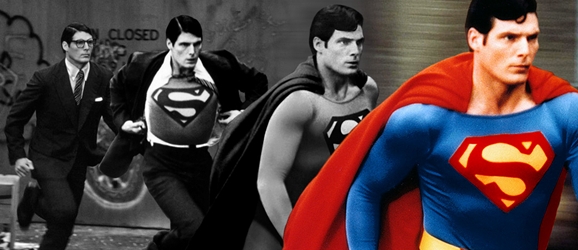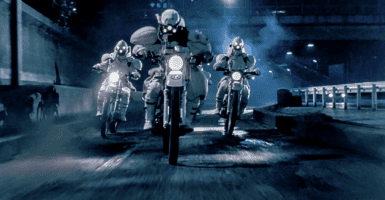Virtual Superpowers Lead To Real-World Virtue
This article is more than 2 years old

Even though I’m a consistently helpful and polite guy who hopes to be treated in a similar manner, years of jaded pessimism have left me believing that the good in people comes out in words far more often than in deeds. World hunger and food wastage make me sick to death, and I do far less than I could to help with either of those things, but for this story, we’re scaling it down as far as helpful behavior is concerned. But just the reality of the situation. The virtual reality is amped up quite a bit.
For a study in the journal PLOS ONE, researchers Robin Rosenberg, Shawnee Baughman, and Jeremy Bailenson found that the virtual superpower of flight makes people more virtuous. Without making a single person wear their underwear on the outside of their pants, the researchers gathered 60 volunteers and strapped a virtual reality helmet to them, along with other body sensors. The two-part study and following questionnaire were meant to measure how one’s behavior as a VR being affected their subsequent actions in the real world, and found that pro-social behavior transcends digital media.
Volunteers were given one of four tasks inside of a virtual city. Some could fly as a passenger in a helicopter, touring the city, while others in the helicopter could take part in bringing insulin to a child missing somewhere in the city. The other half were given the power of flight, able to physically direct their travels. Similarly, the differences were in touring the city or finding the missing child. The key here is in the passivity of riding in a helicopter versus the active free will of flying like Superman, and even partaking in his heroics. It’s worth noting the careful avoidance of using the word “superhero” or anything synonymous, as to allow that mental correlation to happen naturally. The “adamantium skeleton surgery” part of the study was cancelled for insurance purposes.
Following the VR test, the volunteers were led into an office, one at a time, where someone sat behind a desk with a container of 15 pens on it. The person would knock the pens over each time, and the volunteer’s reaction time in helping to pick up the pens, as well as the number of pens picked up, were both recorded. The volunteers then filled out a questionnaire asking for their self-reports on motion sickness, how real the experience felt, their views on helping, and how they felt about the purpose of the experiment.
The results, though not freakishly one-sided, were definitely conclusive. Those who flew around of their own accord were quickest to help out, while those tagging along in the helicopter were slower to assist. Six of the helicopter riders did not pick up any pens at all. As well, more pens on average were picked up by those with the power of flight. The questionnaire’s results showed those flying experienced a more lifelike sensation. This may lead to other, longer studies that could measure time’s effect as well as a different set of actions involved.
So, we’ve heard it from the experts. How about someone who knows superheroes in and out? The researchers took their study to former DC Comics Publisher and President Paul Levitz for his opinion. The following quote is taken from the study.
Mr. Levitz noted that people familiar with superhero tropes implicitly know that after a character discovers a newfound superpower, the character’s task is to decide how to use it–for personal gain or for the greater good. Perhaps that implicit knowledge was operating in the current study, leading super flight participants to decide unconsciously and perhaps automatically to use their power for good.
When Aquaman was contacted and asked what it’s like to be a superhero, he stared ahead vacantly and shrugged his wet shoulders.












